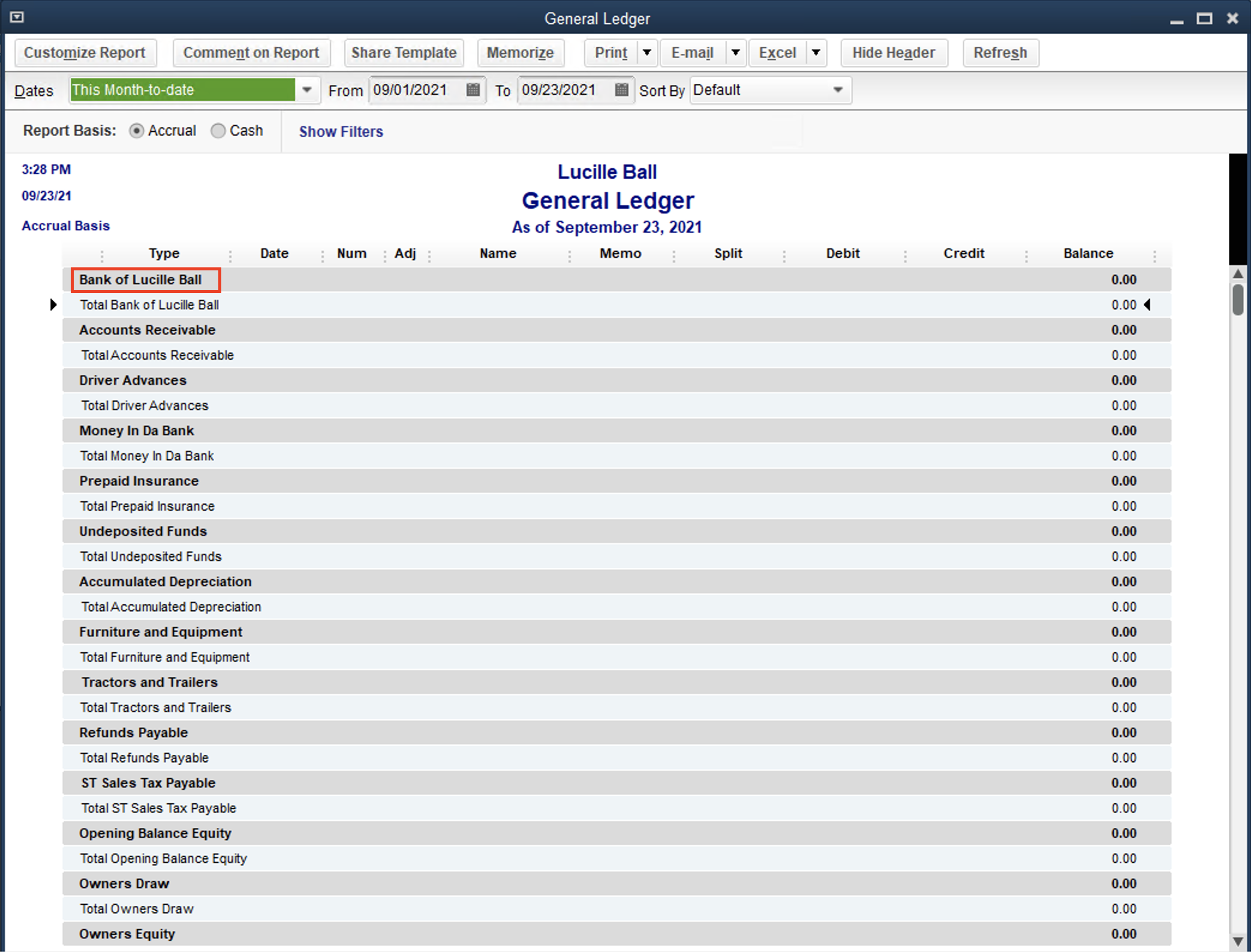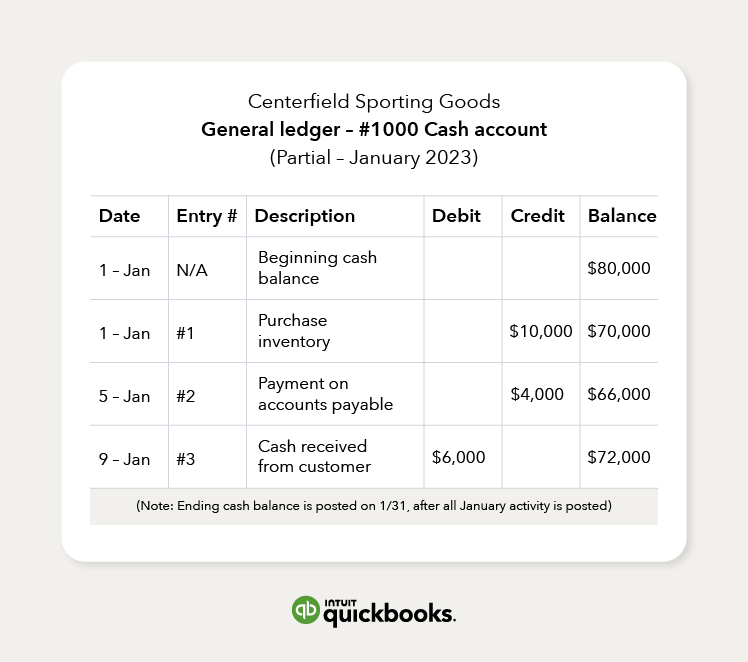QuickBooks General Ledger is a crucial accounting tool that tracks all financial transactions within a company. It provides a comprehensive overview of the organization’s financial health.
The General Ledger in QuickBooks organizes data into categories such as assets, liabilities, income, and expenses, ensuring accurate and up-to-date financial records. By using QuickBooks General Ledger, businesses can easily monitor their financial performance and make informed decisions based on real-time data.
This tool simplifies the accounting process, saves time, and enhances overall financial management efficiency. Understanding and utilizing the General Ledger in QuickBooks is essential for maintaining the financial integrity of a business.

Credit: help.servicetitan.com
What Is A General Ledger?
A General Ledger is a crucial part of any accounting system, including QuickBooks. It serves as the central repository for all the financial transactions of a business, providing a comprehensive record of all the company’s accounts.
Definition
A General Ledger is a master accounting document that provides a complete record of all financial transactions for a company. It includes every account, such as assets, liabilities, equity, revenue, and expenses.
Purpose
The primary purpose of a General Ledger is to record, summarize, and classify all financial transactions. It serves as the backbone of the company’s financial system, providing a detailed overview of the organization’s financial health and performance.

Credit: quickbooks.intuit.com
Importance Of General Ledger In Quickbooks
General Ledger is a crucial feature in Quickbooks, serving as the foundation for accurate financial management and reporting.
Accurate Financial Reporting
General Ledger in Quickbooks ensures precise recording of financial transactions for detailed reporting.
Tracking Transactions
With General Ledger, businesses can track every financial movement, providing transparency in the process.
Analyzing Business Performance
General Ledger allows for comprehensive analysis of business performance, aiding in strategic decision-making.
Setting Up General Ledger In Quickbooks
In Quickbooks, the General Ledger serves as the backbone of your financial records, organizing all transactions in one central location. Understanding how to set up the General Ledger is crucial for accurate financial reporting.
Chart Of Accounts
Create a Chart of Accounts to categorize your financial transactions. This includes Assets, Liabilities, Equity, Income, and Expenses. Each account should have a unique name and number for easy identification.
Creating Journal Entries
Enter transactions directly into the General Ledger through Journal Entries. Specify the accounts affected, amounts, and dates. Ensure accuracy in recording both debit and credit entries to maintain balance.
Reconciling Balances
Regularly review and reconcile balances to detect errors or discrepancies. Compare General Ledger balances with bank statements to ensure accuracy and identify any missing or incorrect entries.

Credit: quickbooks.intuit.com
Benefits Of Using General Ledger In Quickbooks
When it comes to managing your business finances, utilizing the General Ledger in QuickBooks can offer numerous benefits. By efficiently organizing and tracking all financial transactions, businesses can streamline their bookkeeping, enhance financial management, and simplify tax preparation. In this section, we will delve into the advantages of using the General Ledger in QuickBooks.
Streamlined Bookkeeping
Using the General Ledger feature in QuickBooks enables businesses to maintain organized and accurate financial records. By categorizing transactions and consolidating financial data in one central location, businesses can easily monitor and analyze their financial standing without the hassle of manual record-keeping.
Efficient Financial Management
With QuickBooks General Ledger, businesses can gain insight into their financial health and make informed decisions. By generating detailed reports and real-time financial updates, businesses can efficiently manage cash flow, monitor expenses, and identify areas for potential cost-saving measures, enhancing overall financial management.
Simplified Tax Preparation
The General Ledger in QuickBooks simplifies tax preparation by providing businesses with properly organized financial data. By accurately recording income, expenses, and reconciling accounts throughout the year, businesses can streamline the tax filing process and minimize the risk of errors, ensuring compliance with tax regulations.
Common Challenges With General Ledger In Quickbooks
Maintaining an accurate and up-to-date general ledger is crucial for any business, and Quickbooks has become a popular choice for many organizations. However, like any software, Quickbooks General Ledger is not without its challenges. In this article, we will explore the common challenges that users often face when it comes to managing their general ledger in Quickbooks. Understanding these challenges can help you identify and address them, allowing you to maintain a reliable and error-free general ledger.
Data Entry Errors
Data entry errors can occur in any accounting system, and Quickbooks General Ledger is no exception. These errors often stem from simple mistakes, such as incorrect numbers or transposed digits. However, even a small error can have significant consequences, leading to inaccurate financial records and potentially impacting other aspects of your business. It’s essential to be vigilant and double-check your entries to ensure accuracy. Utilizing the built-in error-checking features in Quickbooks can help catch any potential data entry errors before they become problematic.
Incorrect Account Mapping
Another common challenge with Quickbooks General Ledger is incorrect account mapping. Accurate account mapping is essential for organizing your transaction data correctly and generating accurate financial reports. When account mapping is incorrect, it can result in misreported information, making it challenging to analyze your financials effectively. To address this challenge, take the time to review and validate your account mapping regularly. Ensure that accounts are assigned to the correct categories and that there are no duplicates or inconsistencies that could lead to confusion.
Lack Of Proper Training
A lack of proper training can significantly contribute to challenges with Quickbooks General Ledger. While the software is user-friendly, it still requires a basic understanding of accounting principles and functions. Many users may not have a background in accounting or may be unfamiliar with specific features in Quickbooks. Investing in training for yourself or your staff can help mitigate this challenge. By understanding how to utilize Quickbooks General Ledger effectively, you can optimize your bookkeeping processes and reduce the risk of errors.
Frequently Asked Questions For Quickbooks General Ledger
Does Quickbooks Generate General Ledger?
Yes, QuickBooks does generate a general ledger. It keeps track of all financial transactions and organizes them into accounts, such as assets, liabilities, and expenses. This allows businesses to easily access and analyze their financial information.
How Do I Create A General Ledger Entry In Quickbooks?
To create a general ledger entry in QuickBooks, go to the “Company” menu, select “Make General Journal Entries,” enter the date, account, and amount, then save the entry.
What Is Quickbook Ledger?
QuickBooks ledger is a digital record of all financial transactions within the accounting software. It tracks debits and credits for accurate financial reporting and analysis.
How Do I Extract Gl From Quickbooks?
To extract GL from QuickBooks, go to Reports > Company & Financial > Profit and Loss. Customize the date range and export the report to Excel.
Conclusion
Managing your general ledger in QuickBooks is essential for efficient financial management. With its user-friendly interface and comprehensive features, QuickBooks streamlines the ledger management process for businesses of all sizes. By utilizing this powerful tool, businesses can ensure accurate record-keeping and gain valuable insights into their financial health.


